Special Education – Transition Services

Sandra Murray, Assistant DirectorSpecial Education | Kristin PewittTransition Consultant |
Holley AshworthSecretary770.426.3328 |
Staff
| Kelly Buice | Transition Resource Specialist |
| Allison Burgamy | Transition Resource Specialist |
| Teresa Clackum | Transition Resource Specialist |
| Amanda Hall | Community Based Skills Training Manager |
| Diane Latessa | Transition Resource Specialist |
| Lauren Marks | Transition Resource Specialist |
| Terri Woodward | Transition Resource Specialist |
Click here for a listing of Transition Resource Specialist Locations
Transition Events
| ||
| ||
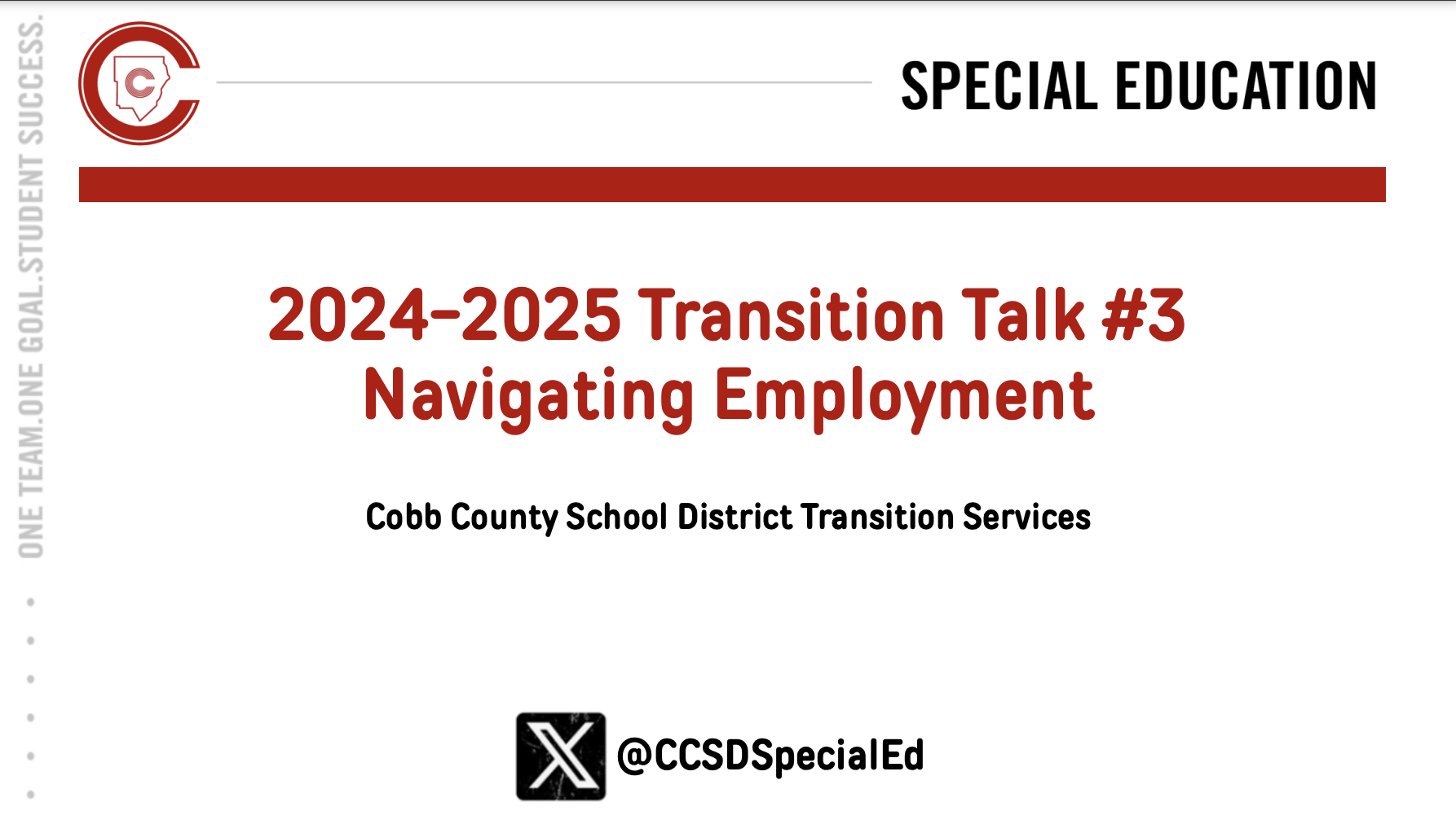 | 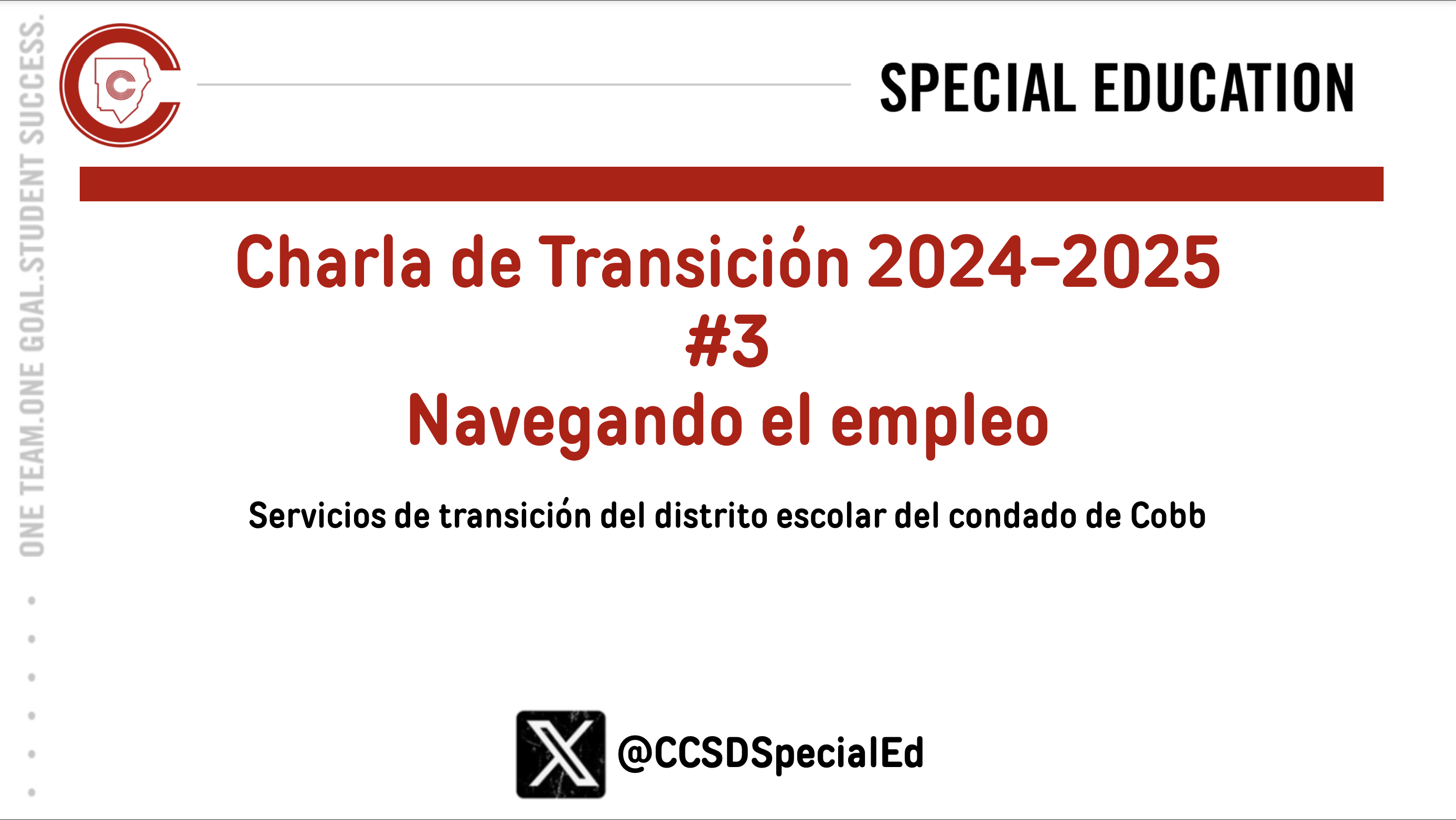 |
Community Resource Guide
Advocacy and Assistance - English | En Español | Em Portugues
Community Participation - English | En Español | Em Portugues
Employment - English | En Español | Em Portugues
Extensive Supports - English | En Español | Em Portugues
Financial & Legal Supports and Services
Health and Wellness - English | En Español | Em Portugues
Independent Living - English | En Español | Em Portugues
Post-secondary Education - English | En Español | Em Portugues
What does CCSD's Transition Services Team Do?
The Transition Services Team for Cobb County School District works to make sure students with disabilities and their families are prepared to make the transition into post-high school life.
Each high school and middle school in the district has a Transition Resource Specialist (TRS) assigned to support the school.
Transition Resource Specialists
- Meet with graduating seniors to help them connect with post-secondary agencies and advise them on next steps.
- Advise students with disabilities and families about post-secondary options in the areas of employment, education/training, community access, and independent living.
- Schedule and host a variety of events and speakers to help students with disabilities and their families learn more about post-secondary funding sources and post-secondary education, training, employment, and independent living opportunities.
- Guide case managers, students with disabilities, and their families in the transition planning process.
- Support Transition Services programs for students with disabilities who are 18-22 years old.
Transition Services Programs for Students with Disabilities 18-22 Years Old
Cobb County School District has several options for students with disabilities who are at least 18 years old, have completed academic and testing requirements for graduation*, but are still eligible for special education services. Decisions regarding participation in Transition Programs/Classes are made through the IEP process.
Transition Services Programs include: Transition Classes, Project Life, and Supported Work-Based Learning.
Transition Classes
- Instruction in Transition classes focuses on independent living/daily living skills, community access skills, and employability or pre-employment skills.
- There are several Transition classes designed to meet the various needs of students at a variety of independence levels. Determinations about which class may meet a student’s needs are made through the IEP process.
- Currently, Transition classes are located at Allatoona High School, Campbell High School, Harrison High School, Hillgrove High School, Kennesaw Mountain High School, McEachern High School, North Cobb High School, Osborne High School, Pebblebrook High School, Pope High School, South Cobb High School, Sprayberry High School, and Wheeler High School.
Project Life
- Project Life consists of the Corporate Classroom Program and the SETS (Students Exploring Transition Services) Program.
- Project Life classes are not located at CCSD high schools.
- Currently the Corporate Classroom program is located at the Instructional Support Center for Cobb County School District.
- The SETS Program classes are located on the Kennesaw and Marietta campuses of Kennesaw State University.
- Students in Project Life programs participate in unpaid internships/volunteer opportunities in order to improve employability skills.
- Students in Project Life programs are introduced to adult responsibilities through their internships/volunteer opportunities, classroom instruction, and community-based instruction.
- Students in Project Life have previously participated in the school-based Transition Program for at least one semester to gain stamina, soft skills, and independent living instruction.
- Participation in Project Life programs requires a high level of independence.
Information Guides for Transition Planning
*Por favor, comunícate con la escuela de tu estudiante para obtener guías en Español.
*Entre em contato com a escola do seu aluno para obter guias em Português.

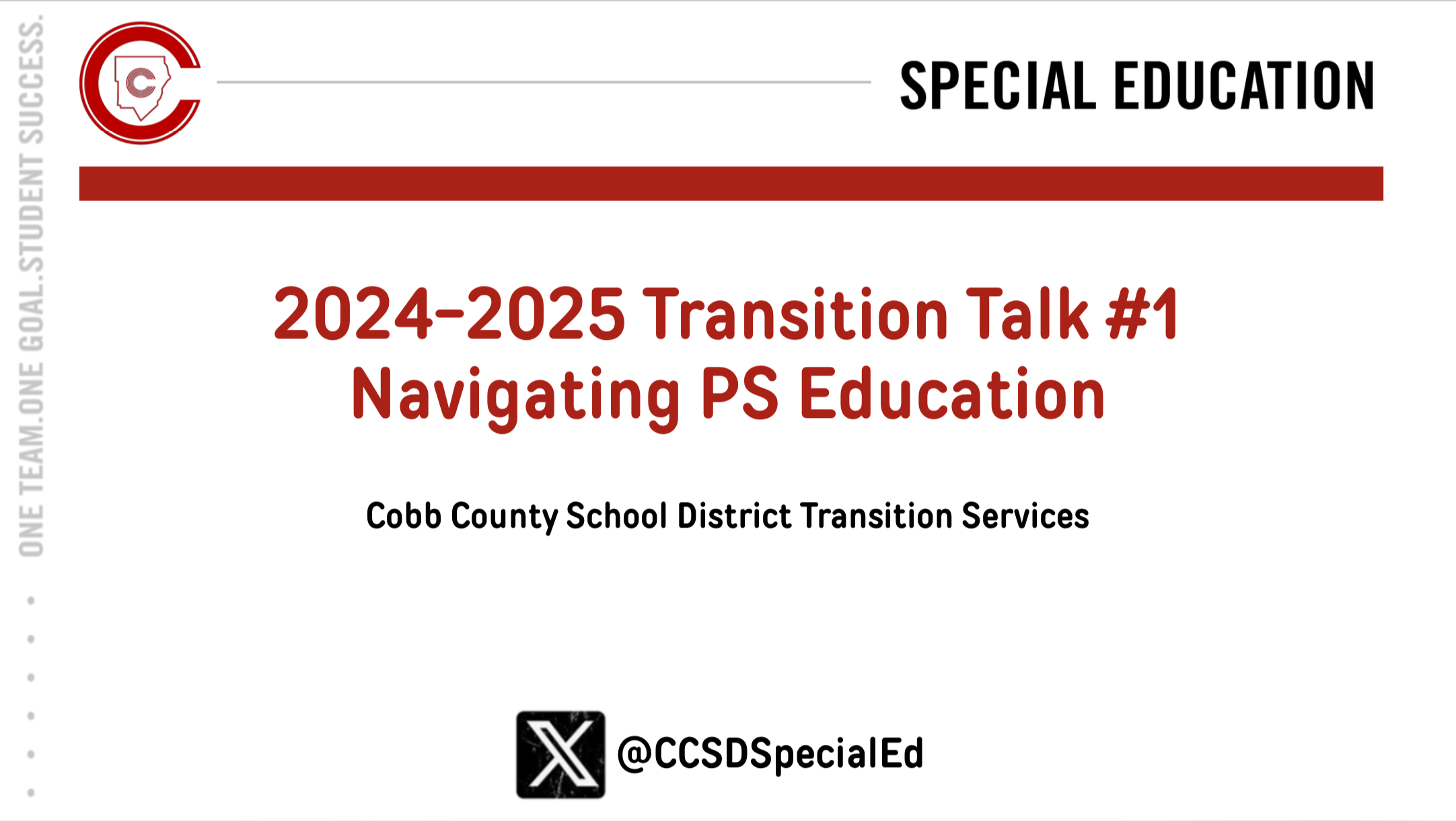
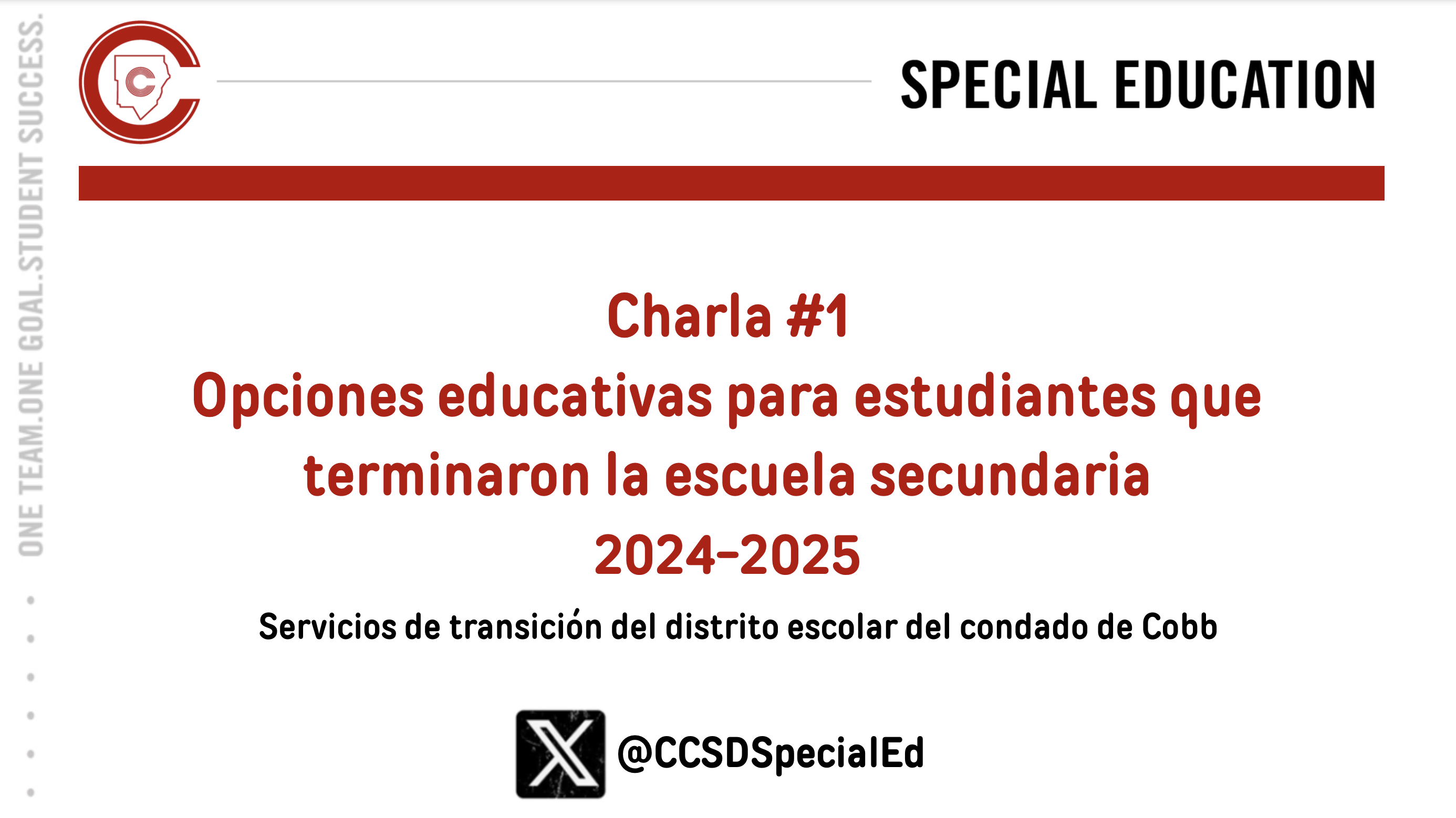
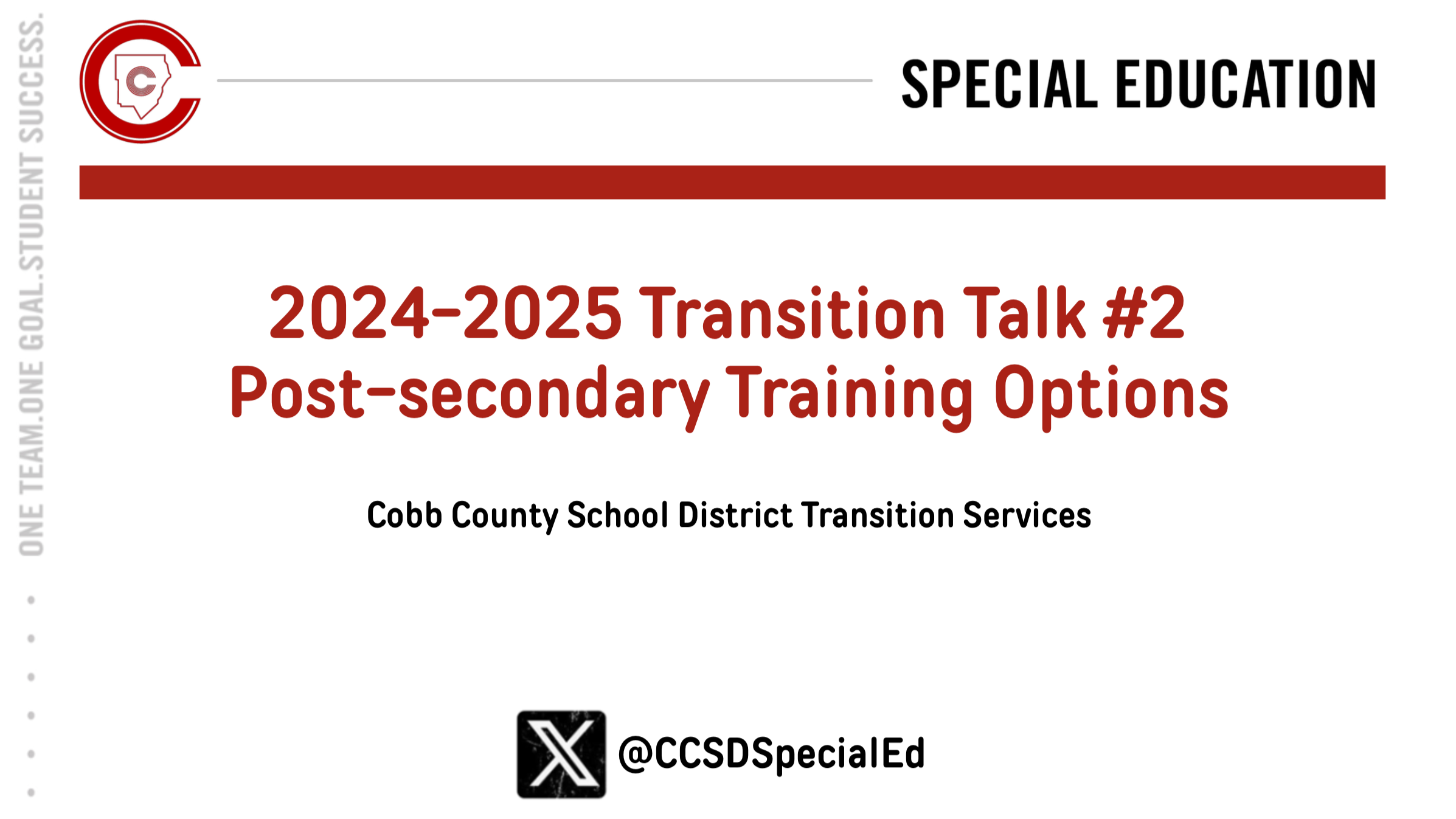
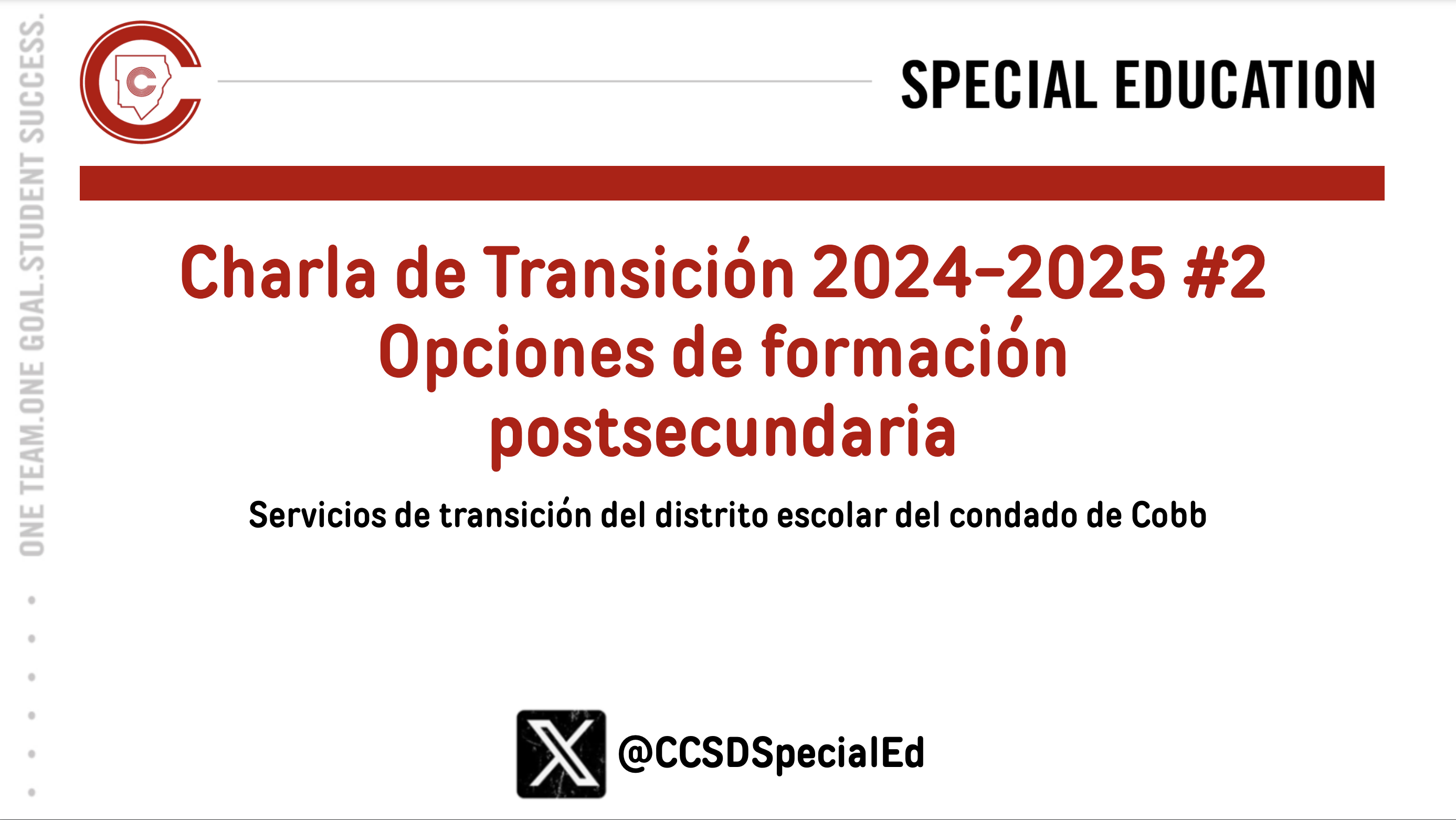
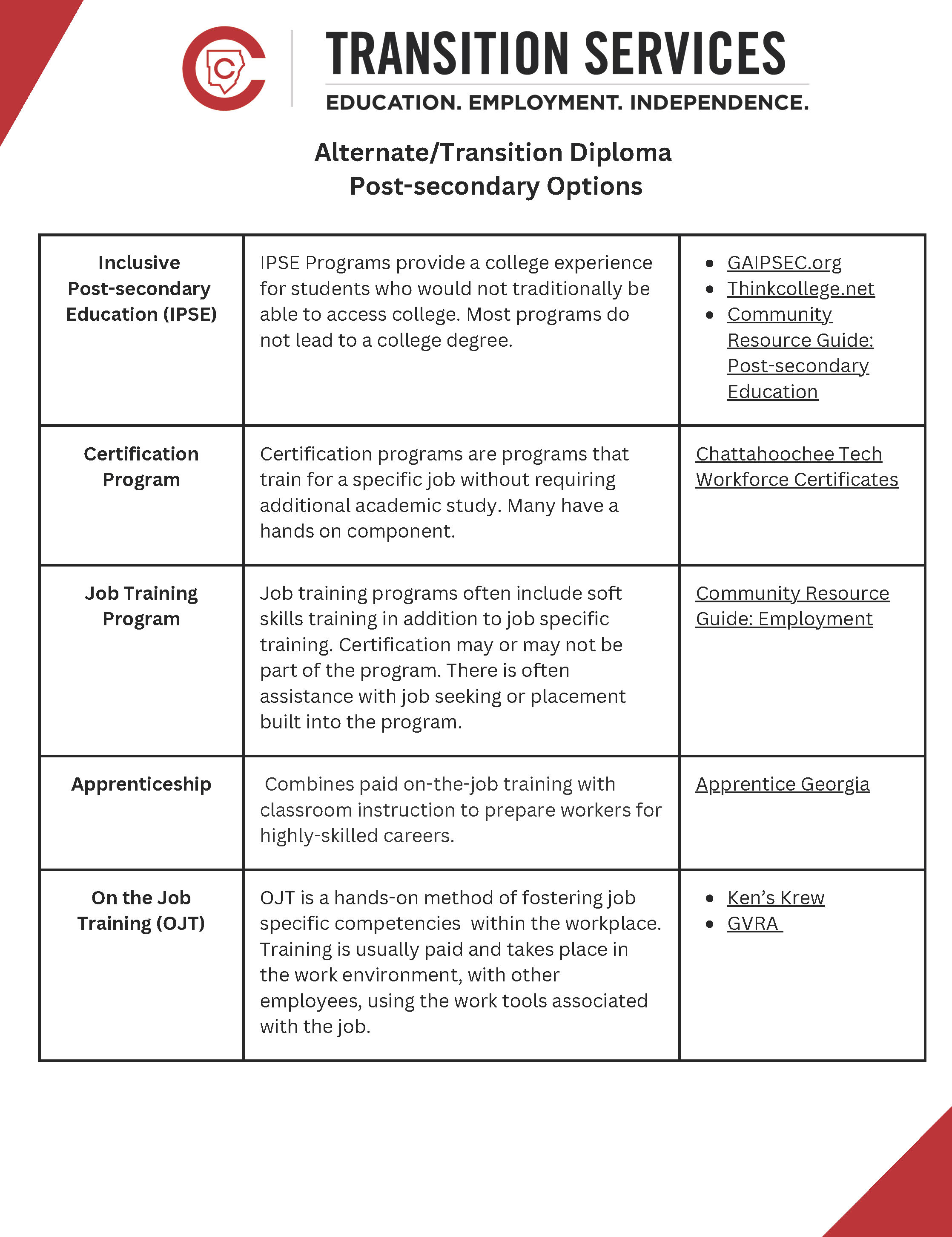
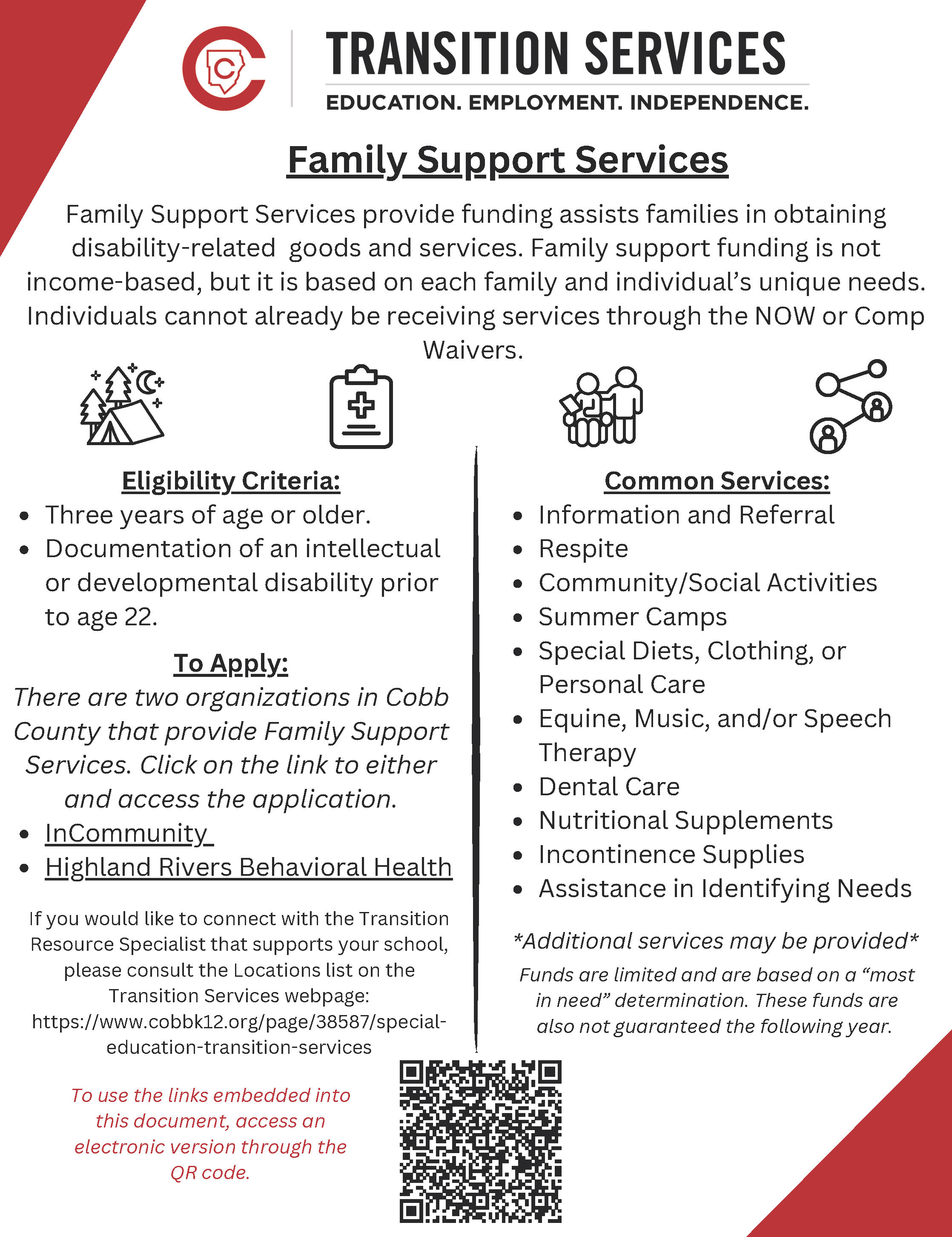 Family Supports Guide
Family Supports Guide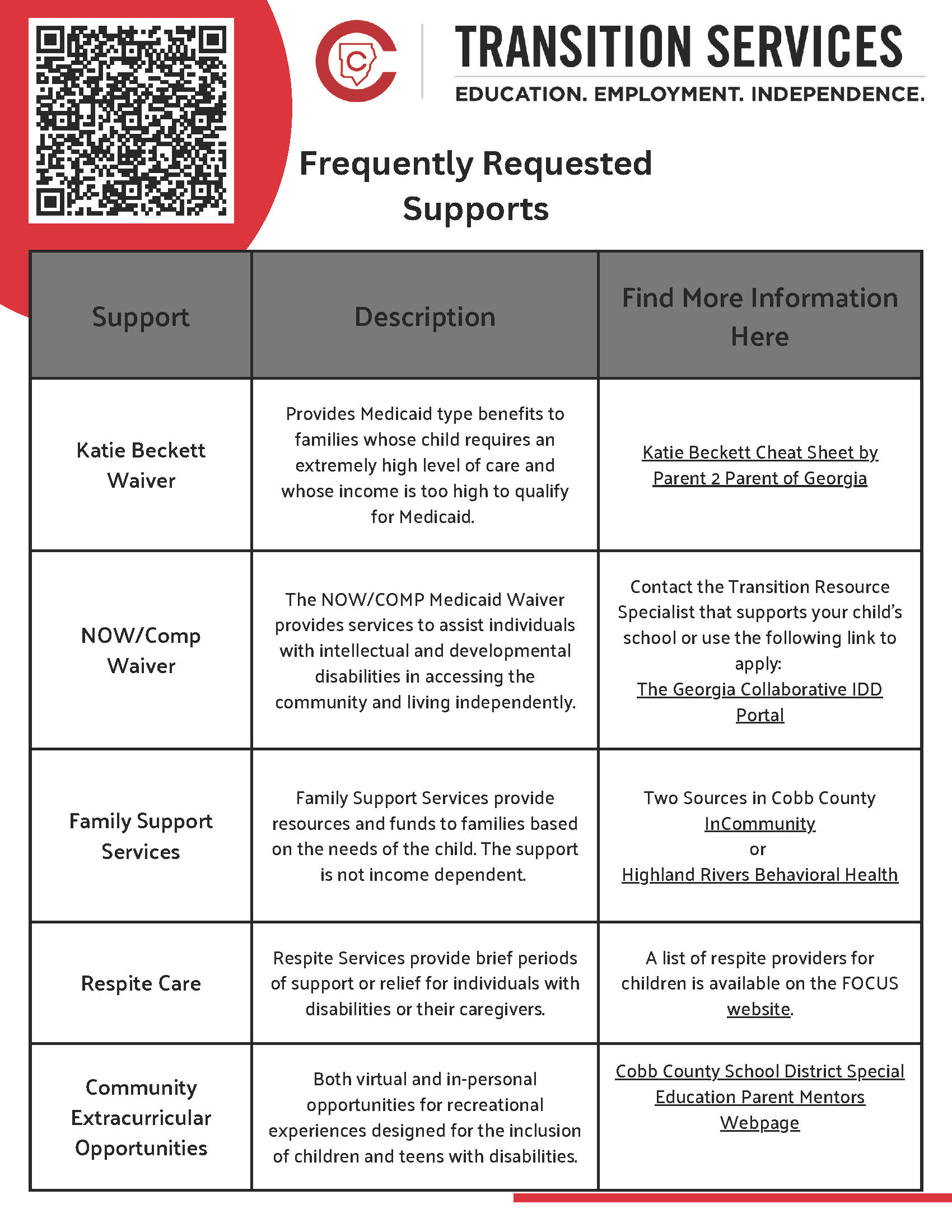 Frequently Requested Supports
Frequently Requested Supports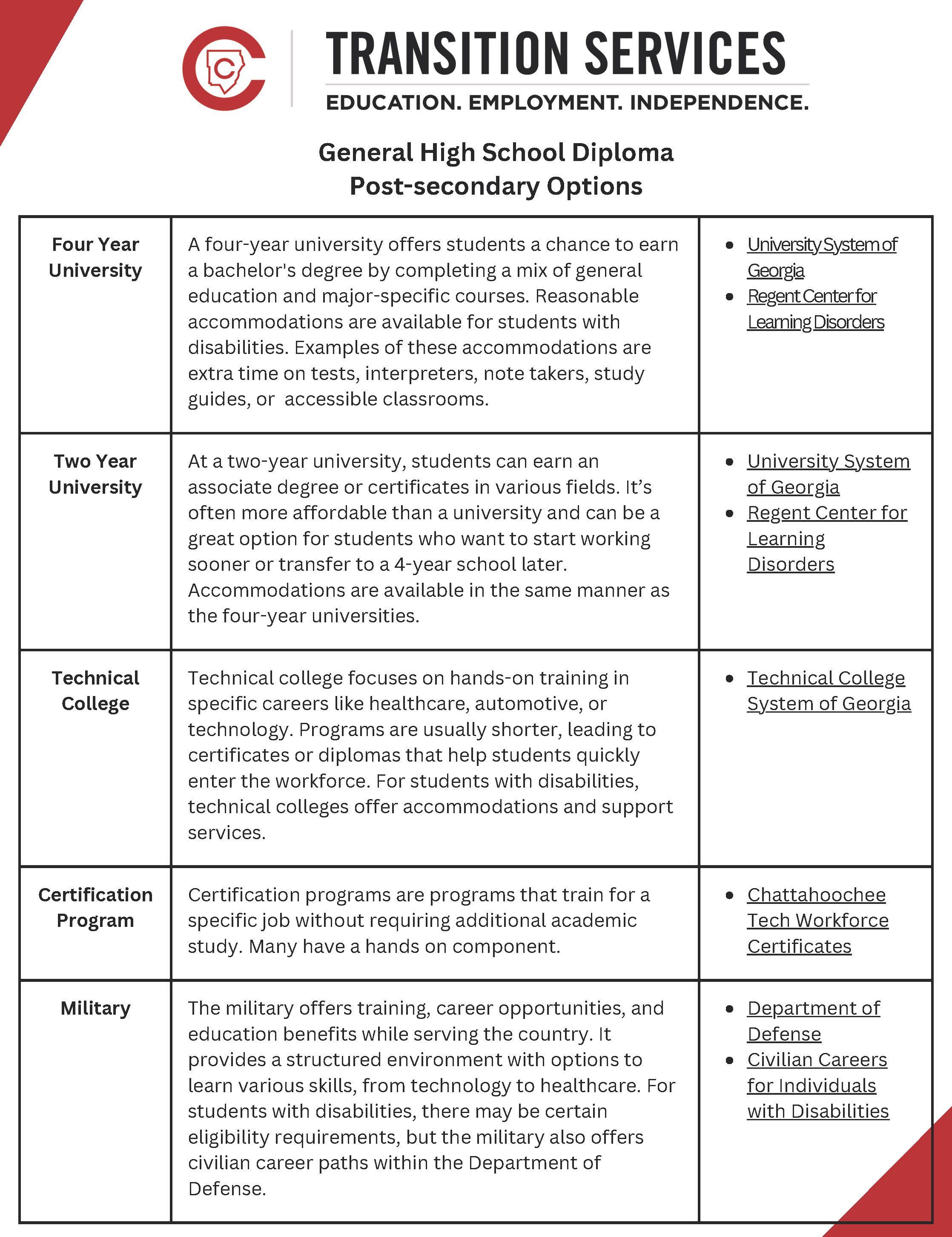
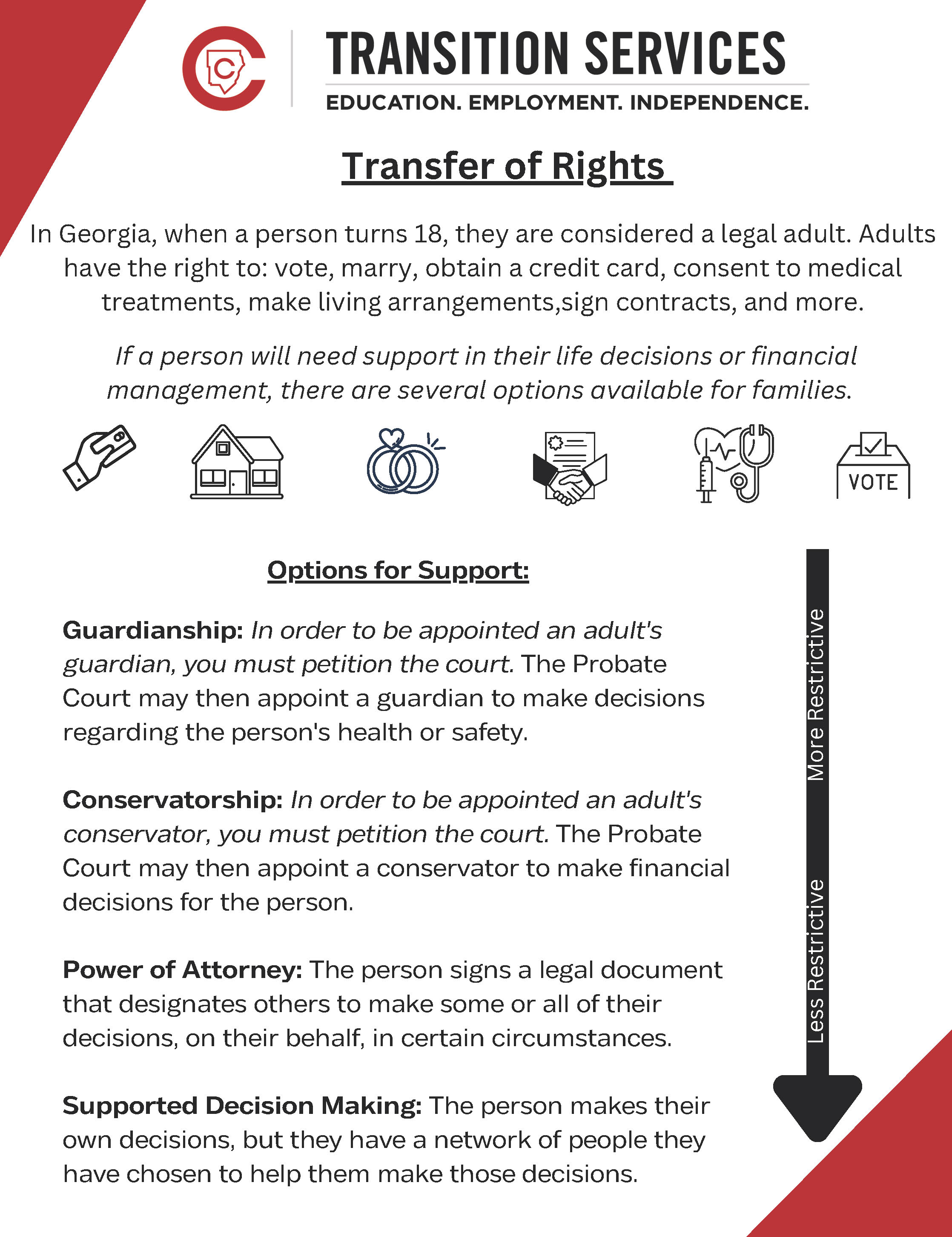
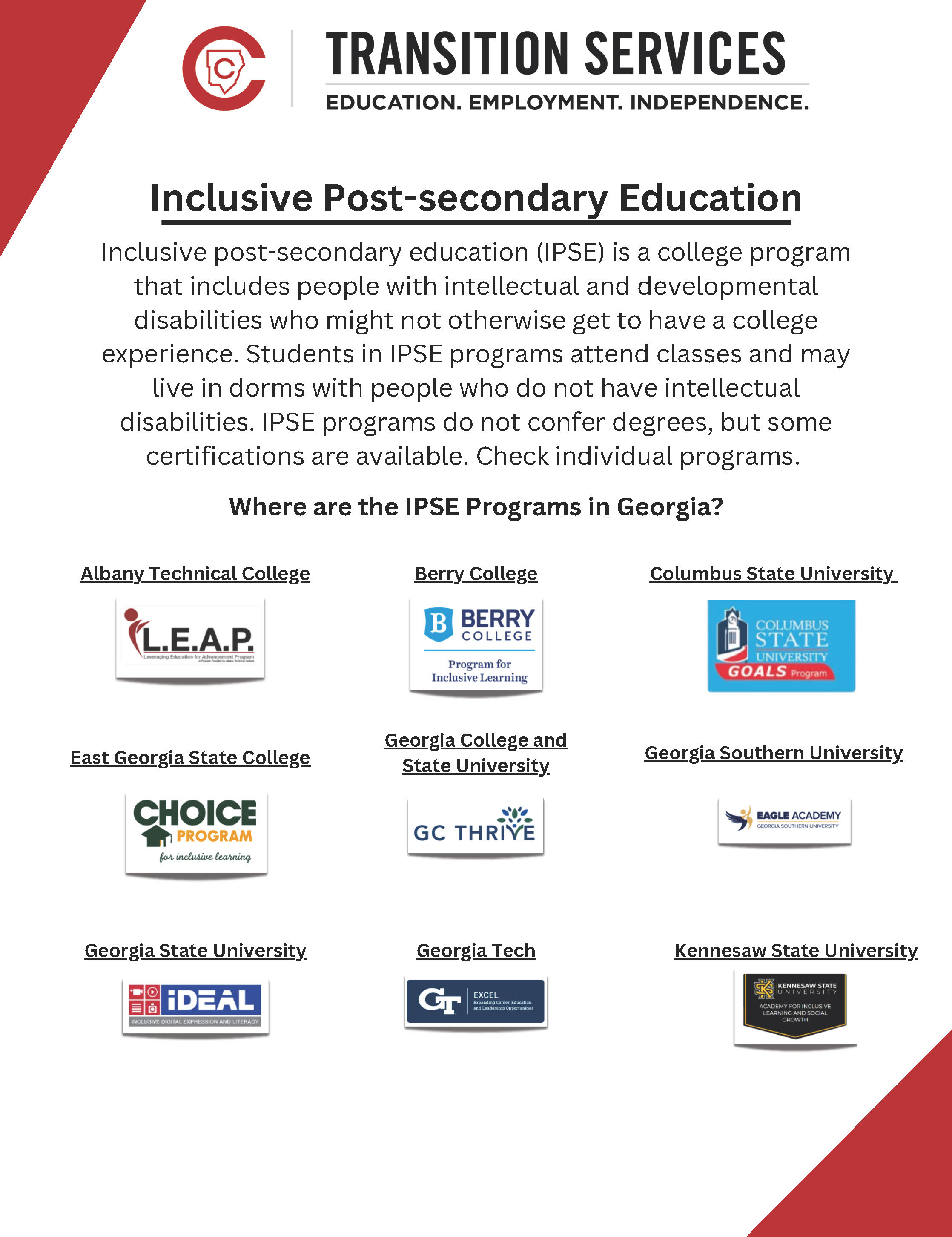 Inclusive Post-Secondary Education
Inclusive Post-Secondary Education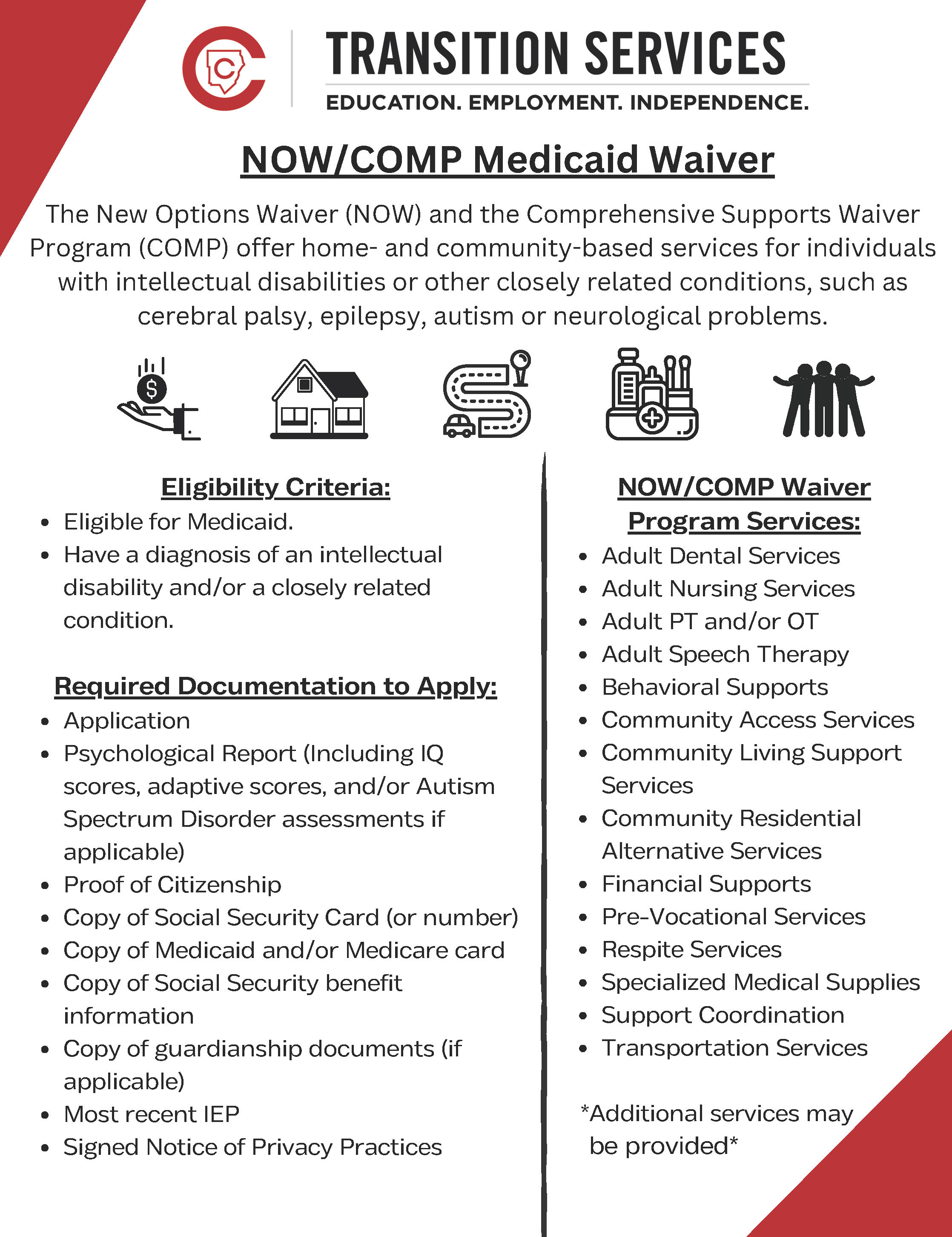 Medicaid Waiver Guide
Medicaid Waiver Guide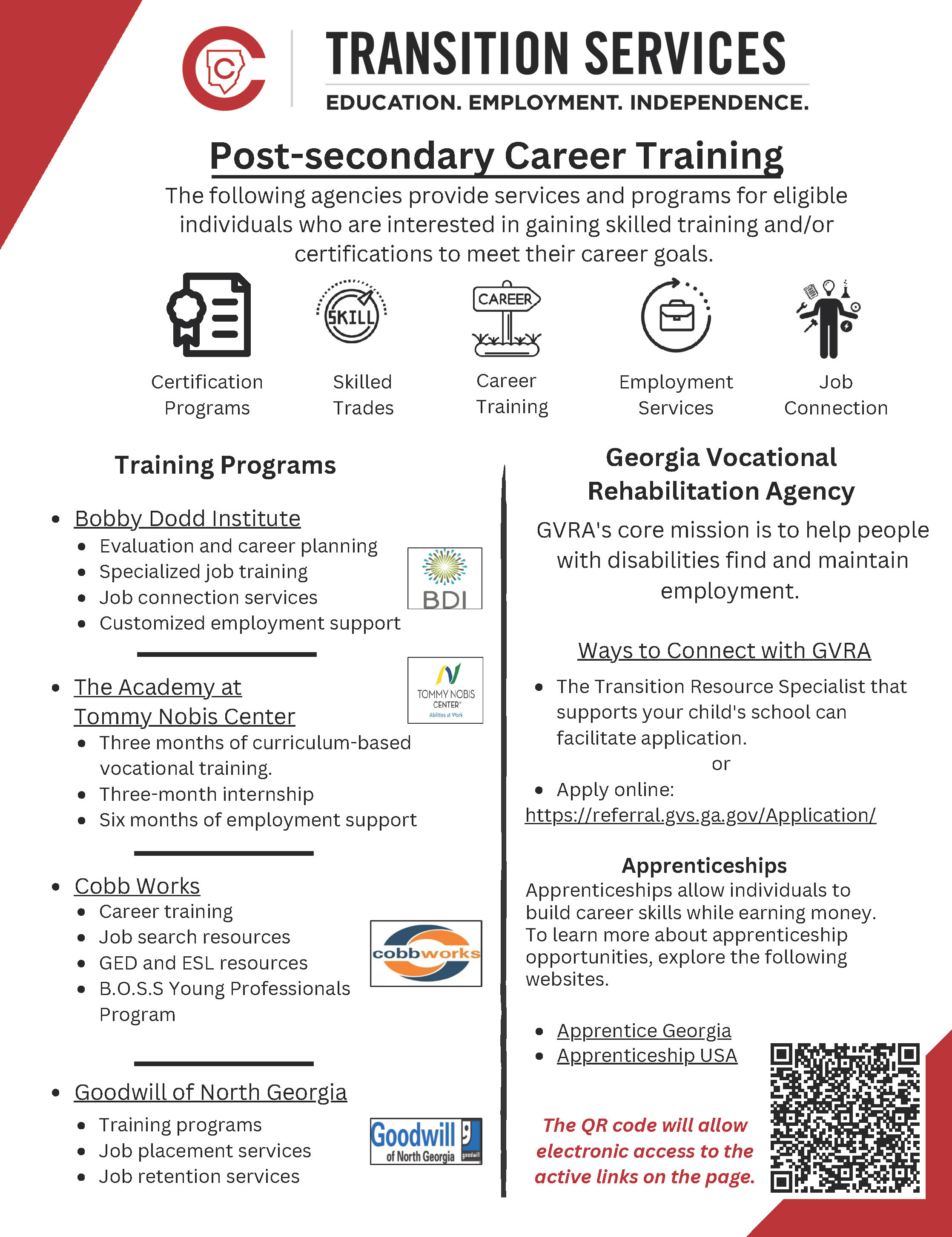 Post-Secondary Career Training Guide
Post-Secondary Career Training Guide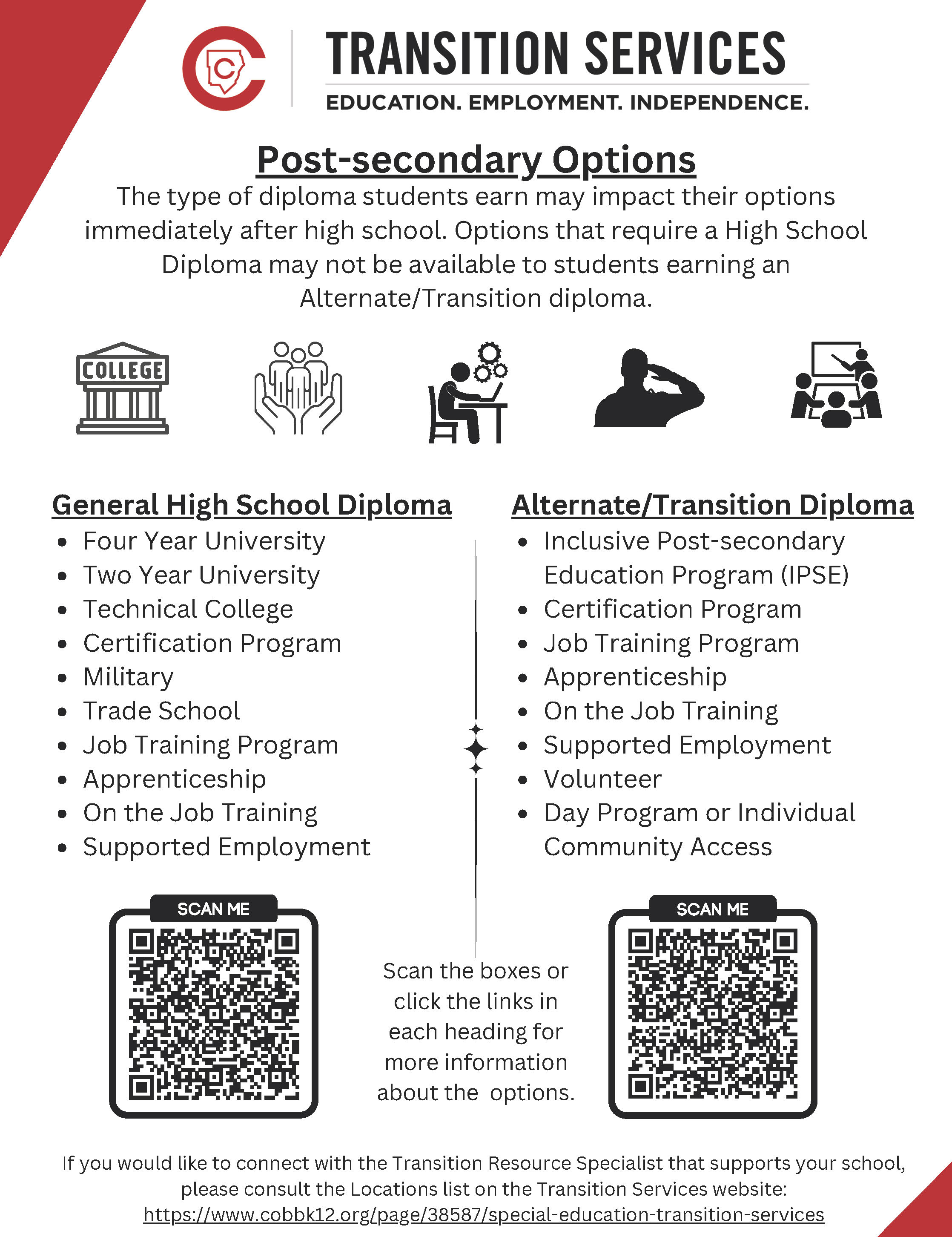 Post-Secondary Options
Post-Secondary Options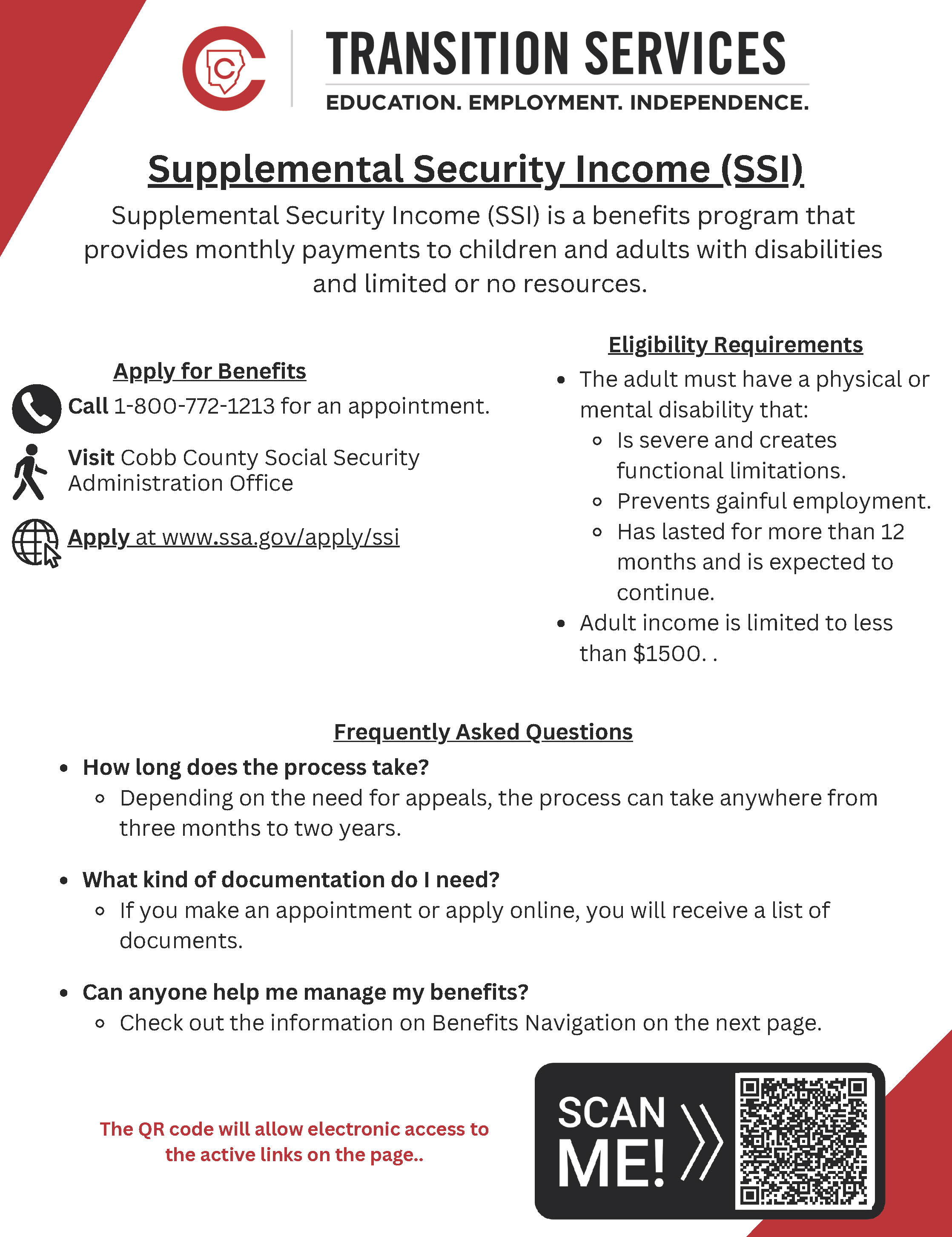 Supplemental Security Income (SSI) Guide
Supplemental Security Income (SSI) Guide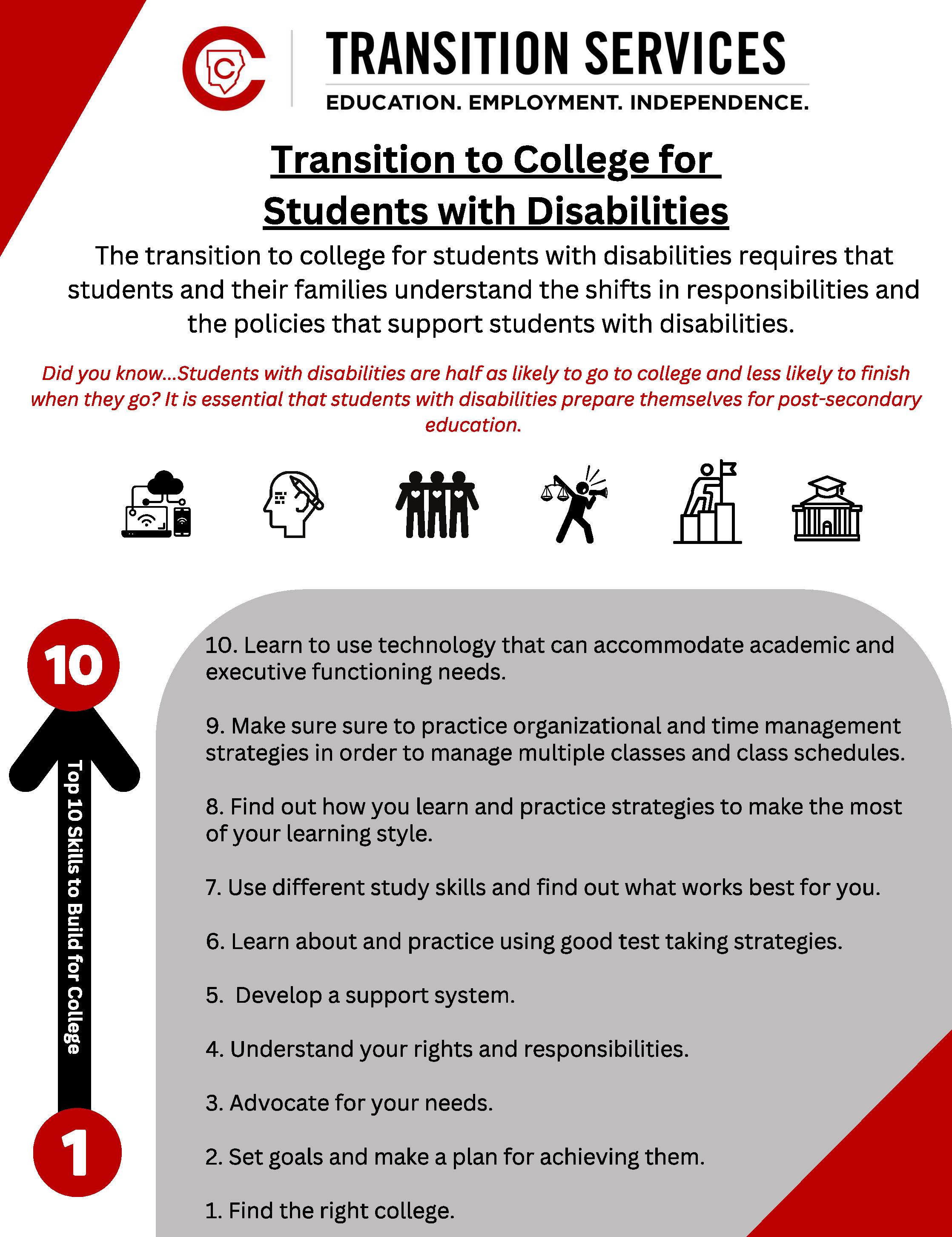 Transition To College for SWD
Transition To College for SWD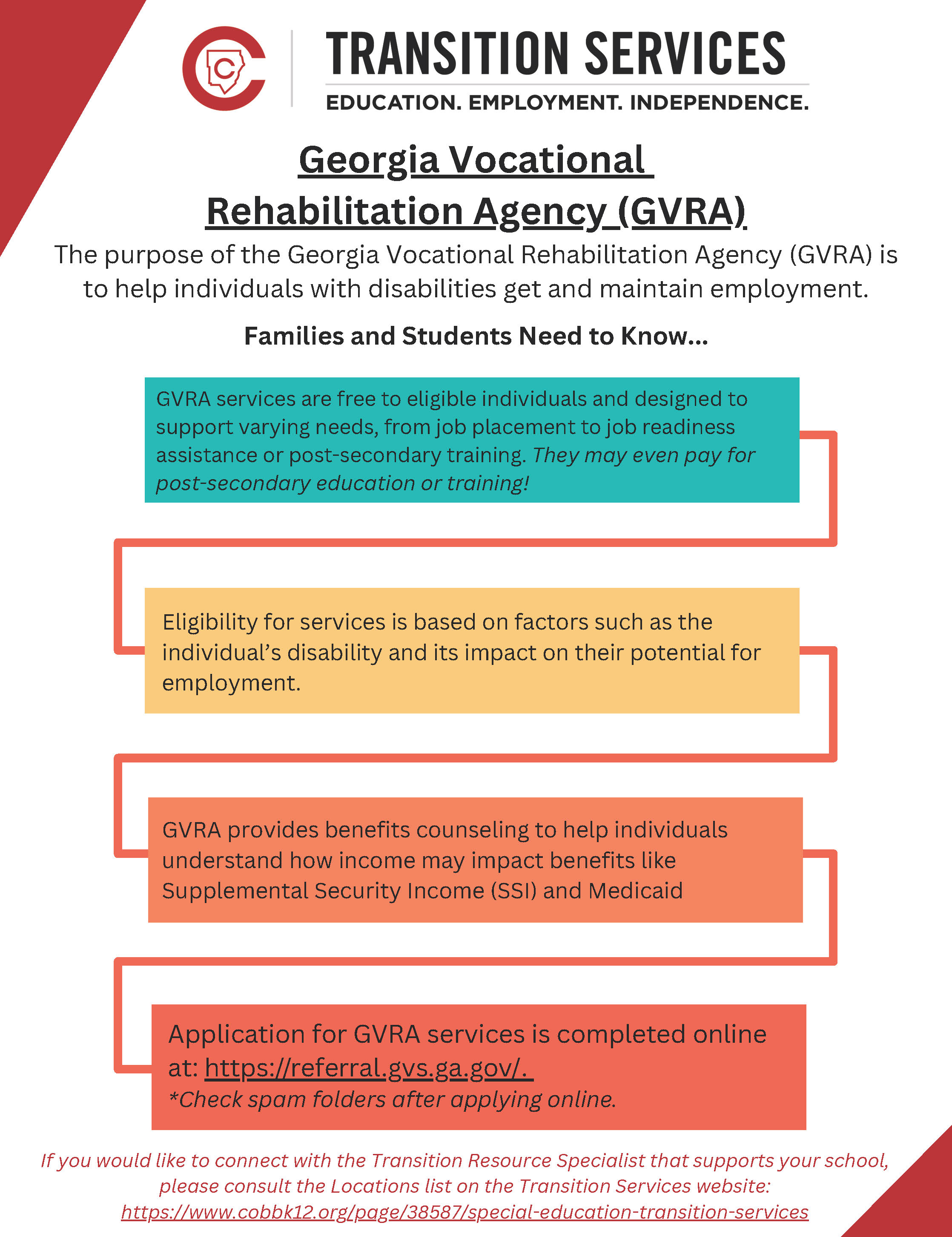 Georgia Vocational Rehabilitation Agency
Georgia Vocational Rehabilitation Agency